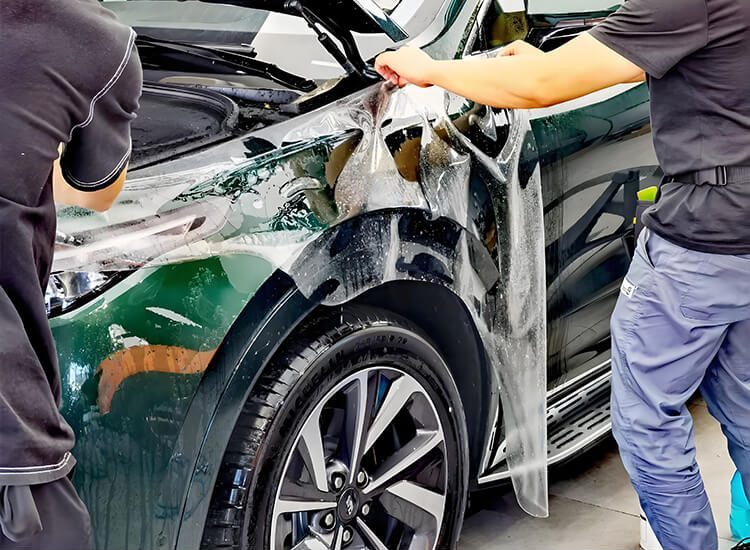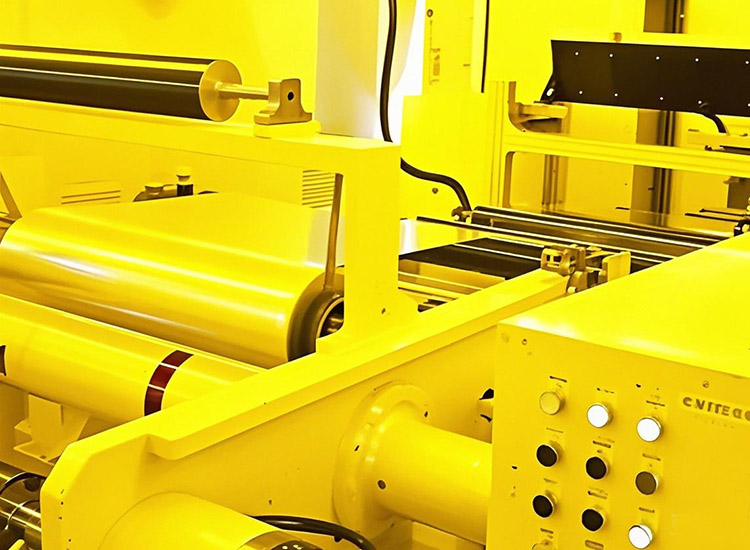TPU vs PVC Car PPF: Choosing the Right Film for Your Car
When it comes to protecting your car’s paint, choosing the right car PPF can make all the difference. Many car owners face the dilemma of deciding between TPU vs PVC Car PPF, unsure which material provides the best long-term protection, scratch resistance, and durability. Understanding the differences in material performance, installation methods, and maintenance needs is crucial for anyone looking to preserve their vehicle’s appearance. Whether you drive in Los Angeles, Dubai, or Shanghai, the right film ensures your investment stays protected and your car looks showroom-ready. For a detailed overview, check out Car PPF: Everything You Need to Know.
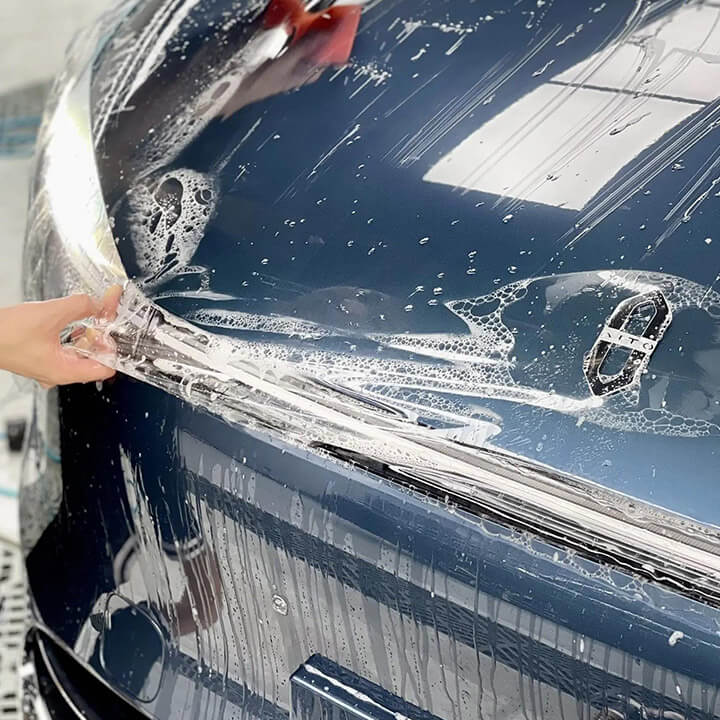
PreproPPF Clear PR-Q01
On a budget? Check out basic protection PPF PR-Q01, 5×50 ft, free shipping worldwide.
About TPU and PVC in Car PPF
What is TPU Paint Protection?
TPU paint protection is a thermoplastic polyurethane film known for its elasticity, self-healing properties, and high resistance to scratches. This material is widely preferred for luxury and sports vehicles, as it offers superior flexibility and clarity, allowing it to conform to curves without distorting the paint underneath. Many PPF suppliers emphasize TPU’s ability to withstand minor abrasions while maintaining a glossy finish, making it ideal for high-traffic areas such as bumpers, hoods, and side mirrors. High-quality TPU car paint protection film often comes with enhanced UV resistance, preventing yellowing over time. Learn more about different film types in Types of Paint Protection Film.
What is PVC Paint Protection?
PVC paint protection, on the other hand, is a polyvinyl chloride film that is slightly stiffer than TPU. While still effective in protecting against scratches and stone chips, PVC car PPF tends to lack the self-healing property that TPU offers. However, PVC films are generally more affordable and easier to install for DIY enthusiasts. Many automotive PPF factories produce PVC films for vehicles with less complex contours, providing a cost-effective solution without compromising on basic vehicle paint protection. If you are just starting out, see Beginner’s Guide to Car PPF.
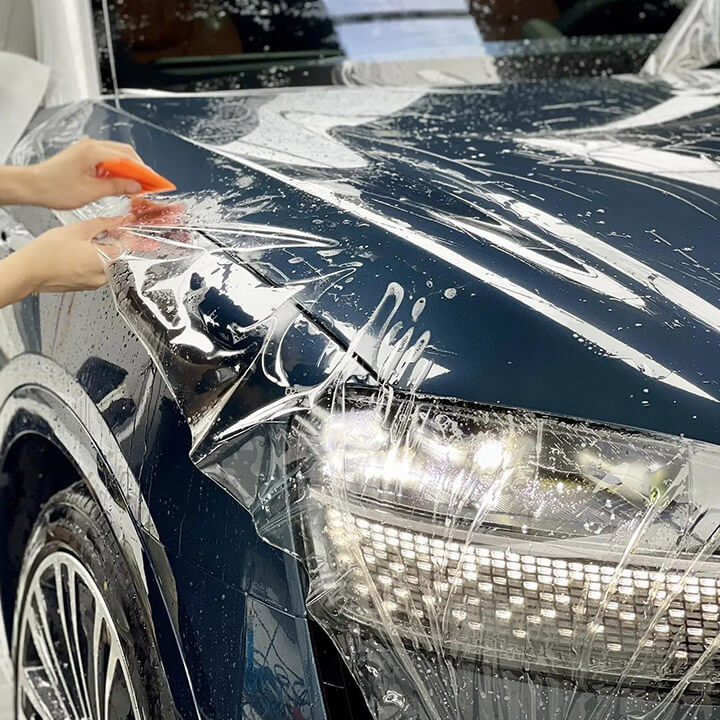
Key Differences Between TPU and PVC Car PPF
Durability and Scratch Resistance
When comparing TPU vs PVC car PPF durability, TPU clearly excels due to its self-healing ability. Minor scratches vanish under heat or sunlight, while PVC may retain visible marks. If your car frequently encounters gravel roads, parking lot dings, or urban debris, TPU’s superior resilience ensures long-term protection. In contrast, PVC works best for vehicles primarily used in calmer environments where minimal contact with abrasive materials occurs. For more info on longevity, see How Long Paint Protection Film Last?.
Flexibility and Conformability
TPU films are much more flexible than PVC, allowing installers to wrap tight curves and complex body panels without forming bubbles or wrinkles. PVC films can struggle in these areas, often requiring more trimming or patchwork. If you own a car with intricate lines, such as a sports coupe or a luxury sedan, TPU’s elasticity provides a seamless finish.
UV and Yellowing Resistance
Both materials offer UV protection, but TPU generally maintains its clarity longer. PVC can yellow over time, especially under prolonged exposure to sunlight in places like Dubai or Miami. For car owners prioritizing long-term aesthetic maintenance, TPU is often recommended.
Cost Considerations
Car PPF cost comparison shows that PVC films are cheaper upfront, making them appealing for budget-conscious buyers or fleet vehicles. TPU films, while more expensive, offer higher value over the lifespan due to their longevity and self-healing properties. Many PPF manufacturers advise considering the balance between initial cost and long-term benefits when choosing between TPU and PVC. For detailed pricing, see PPF Coating Cost.
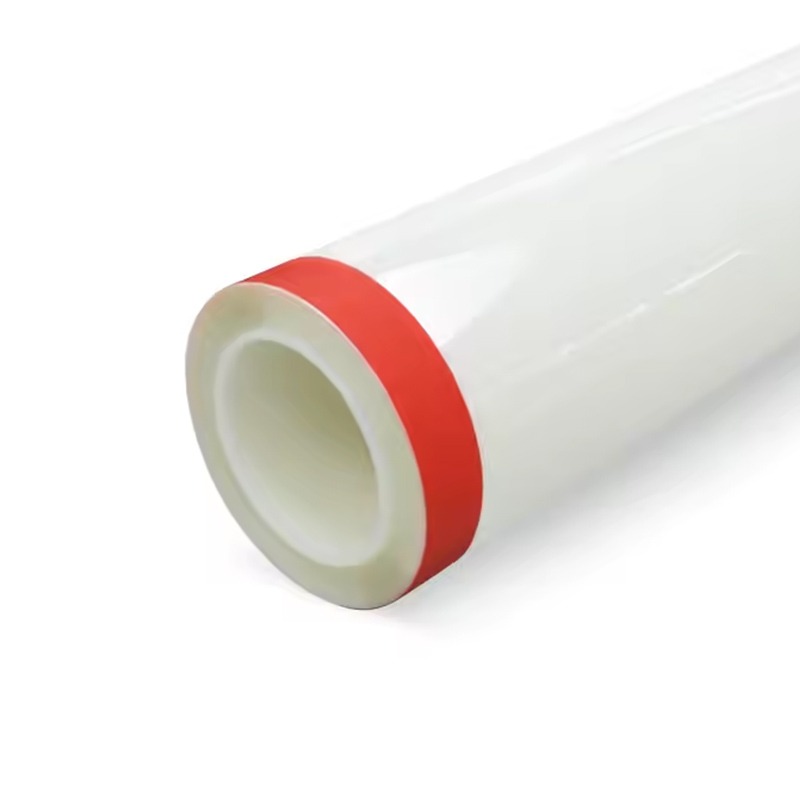
PreproPPF Clear PR-Q01
On a budget? Check out basic protection PPF PR-Q01, 5×50 ft, free shipping worldwide.
Installation and Maintenance Tips
Professional vs DIY Installation
Both TPU and PVC films can be installed by professionals or DIY enthusiasts. Car PPF installation requires precision, proper surface preparation, and attention to detail to avoid bubbles or peeling edges. TPU, being more flexible, is easier for professional installers to manipulate but may be challenging for first-time DIY users. PVC, while less forgiving on curves, can sometimes be simpler for straightforward flat surfaces.
Maintaining Your Car PPF
To maximize longevity, wash your car regularly with pH-neutral cleaners and avoid abrasive brushes. TPU films benefit from self-healing properties, so minor scratches are often eliminated naturally. PVC films may require occasional polish to minimize surface marks. Both types should be inspected periodically, especially in high-impact areas like front bumpers, side skirts, and door edges. To estimate how much film your vehicle needs, check PPF Usage Volume.
Choosing the Right Film for Your Vehicle
Factors to Consider
When deciding how to choose between TPU and PVC PPF, consider your car type, driving habits, budget, and aesthetic priorities. For luxury vehicles or sports cars, TPU is often preferred due to its high scratch resistance, clarity, and self-healing ability. PVC may suffice for daily commuters or budget-conscious owners who want basic protection without breaking the bank. You can also compare options with Car PPF vs Ceramic Coating.
Long-Term Value
Think about the long-term benefits. TPU may cost more initially but saves money on repairs and preserves resale value by keeping paint in pristine condition. PVC offers a lower entry point, but may require replacement sooner or show wear faster. Assess your usage environment and vehicle type to make an informed choice. For brand recommendations, see Best 10 Paint Protection Film Brands.
Global Availability and Considerations
Automotive PPF suppliers operate worldwide, and quality films can be sourced in markets like Tokyo, London, Dubai, New York, and Sydney. When buying from a PPF factory or wholesale distributor, ensure they provide genuine TPU or PVC films with clear specifications on thickness, scratch resistance, and warranty. Comparing reviews and product specifications can help you identify the best car PPF material for your specific needs.
Summary: TPU vs PVC Car PPF
In summary, the TPU vs PVC car PPF debate boils down to priorities. TPU excels in flexibility, scratch resistance, and longevity, ideal for high-end vehicles or harsh driving conditions. PVC provides an economical alternative suitable for simpler vehicles and less aggressive environments. Proper installation, routine maintenance, and choosing the right manufacturer or supplier are key to maximizing vehicle paint protection. Both materials have their place, and understanding their strengths ensures your car stays protected while maintaining its appearance.
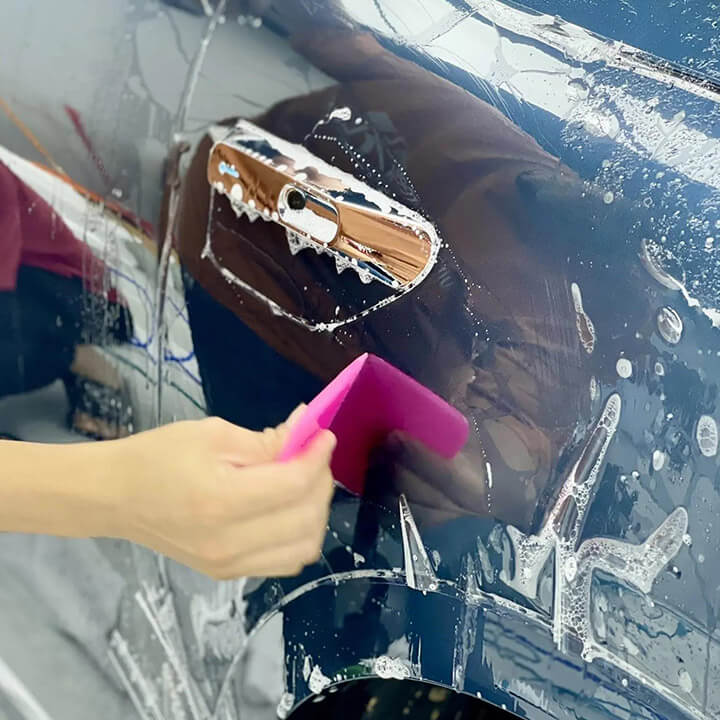
PreproPPF Clear PR-Q01
On a budget? Check out basic protection PPF PR-Q01, 5×50 ft, free shipping worldwide.
PreproPPF: Quality TPU Car PPF Supplier
PreproPPF is a leading PPF manufacturer and supplier specializing in high-quality TPU and PVC films. With state-of-the-art production facilities and global distribution channels, PreproPPF serves clients in the USA, Europe, and Asia. Their films offer excellent scratch resistance, self-healing properties, and long-lasting clarity, making them ideal for luxury and everyday vehicles. By working directly with PreproPPF, customers gain access to premium automotive PPF products at competitive wholesale prices, ensuring professional-grade protection for every car.
Frequently Asked Questions (FAQ)
Q1: What is the difference between TPU and PVC car PPF?
A1: TPU is flexible, self-healing, and scratch-resistant, while PVC is stiffer, more affordable, and lacks self-healing properties.
Q2: How long does a car PPF last?
A2: TPU films can last 7–10 years with proper maintenance, while PVC films typically last 3–5 years depending on conditions.
Q3: Can I install car PPF myself?
A3: Yes, but professional installation ensures a bubble-free, precise finish. TPU is easier for professional installers, PVC may be simpler for DIY flat surfaces.
Q4: Is car PPF worth the investment?
A4: Absolutely. It protects your paint from scratches, stone chips, and UV damage, preserving your car’s appearance and resale value.

